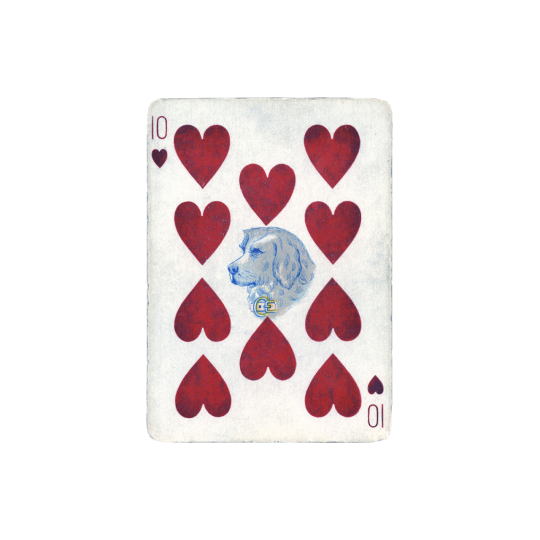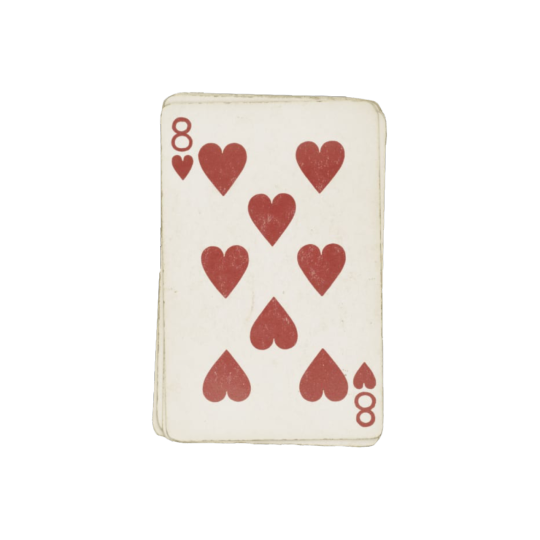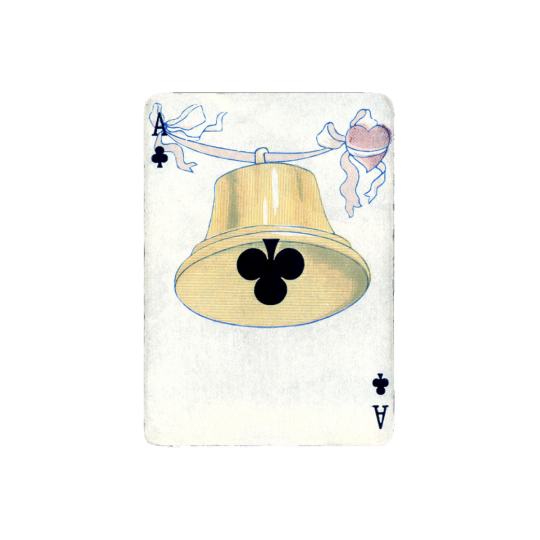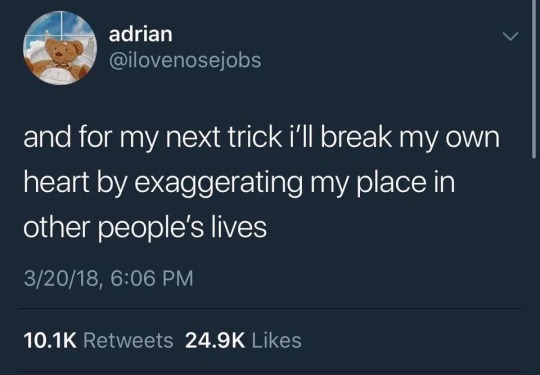|-Twenty Six--Veg--Bisexual--Philly--AVPD—ed recovery—sober since 1/21/18-|
Don't wanna be here? Send us removal request.
Text
I’m 2 months sh free which is the longest I’ve gone in 3 yrs and things are still hard. I haven’t been able to socialize because I feel if I do then I’ll have to sh. I don’t have a therapist and I’m only going to two awful online group therapies a week. The only thing helping is seeing my dietitian twice a month. I’m in grad school, working more, watching tv, and reading sometimes. I just don’t see how this is much better than when I was numbing myself out by shing. Like yes, things are OK. I’m OK. I’m alive, I’m getting by but my one roommates gone for the next week and a half and I seriously don’t know how I’m gonna get by without her since I’m mostly alone. Like what is the entire point of not shing?? I might as well go back to doing it every so often until I can see my old therapist again which could be 4-5 months from now or literally never again. I’m over 3 months clean from the really really bad shing behavior and I relapsed w/ that after 4 months so idk why I can’t just go back to that for just a little tiny bit. Like I won’t do it as much as before only maybe once a week and that way I can keep up with my physical health. The only reason I’ve had to stop is cuz I get way out of control with it. If I do it only a tiny bit and have some goddamn self control then I could just keep doing it for as long as I want too. Once a week wouldn’t cause severe side effects especially if I keep up with taking vitamins, eating enough, sleeping enough etc. I just can’t do anything to cause me to go inpatient bc I can’t miss out on grad school whatsoever. So I simply don’t have the time for more treatment. I literally need to just have this self controlled chaos and be in control of this thing so that I can keep doing it. I had to stop before because it became my entire life and I have so many other important things to do. Anyways, I will see what happens I guess. Hopefully things don’t get out of control and I can have my sh and the things I care about.
5 notes
·
View notes
Text
I cannot stop myself from this dying. I cannot stop myself from this unfurling of colors within me. It never stops. A pin-prick of inequity. A rotten fruit decaying. A single song stuck on a loop in my head. I wonder when the words will go dead? Will they even hear me if I whisper my own name?
0 notes
Text
currently in treatment and the only thing I have access too is my tumblr. OF COURSE. hahahaha
0 notes
Note
do you have information about stpd and avpd? I'm not sure what kind of post I'm looking for but some sort of information about both disorders would be helpful.
Sent in: May 29, 2024
Hello!
I personally like to start with the diagnostic criteria and go from there. According to the DSM-5, all PD diagnosis must first meet general PD criteria, which differentiates someone who has personality traits or personality structures opposed to a personality disorder. PDs, like all other disorders, exist along a spectrum, and meeting this first general PD criteria shows that your personality style is disordered and causes improvement. The criteria is as follows:
1.) An enduring pattern of inner experience and behavior that deviates markedly from the expectations of the individual's culture. This pattern is manifested in two (or more) of the following areas:
Cognition (i.e., ways of perceiving and interpreting self, other people, and events).
Affectivity (i.e., the range, intensity, lability, and appropriateness of emotional response).
Interpersonal functioning.
Impulse control.
2.) The enduring pattern is inflexible and pervasive across a broad range of personal and social situations.
3.) The enduring pattern leads to clinically significant distress or impairment in social, occupational, or other important areas of functioning.
4.) The pattern is stable and of long duration, and its onset can be traced back at least to adolescence or early adulthood.
5.) The enduring pattern is not better explained as a manifestation or consequence of another mental disorder.
6.) The enduring pattern is not attributable to the physiological effects of a substance (e.g., a drug of abuse, a medication) or another medical condition (e.g., head trauma).
Here’s a link to a comprehensive breakdown of the AvPD dx criteria:
Avoidant Personality Disorder DSM-5 301.82 (F60.6)
The StPD dx criteria can be found here:
Schizotypal Personality Disorder Symptoms
Some general info about AvPD:
Avoidant Personality Disorder
Avoidant personality disorder: current insights [ 2018 ]
Agency in avoidant personality disorder: a narrative review
Childhood Antecedents of Avoidant Personality Disorder: A Retrospective Study
Some general info about StPD:
Schizotypal Personality Disorder
Schizotypal Personality Disorder: A Current Review [ 2015 ]
Diagnosis and treatment of schizotypal personality disorder: evidence from a systematic review
The Brain in Schizotypal Personality Disorder: A Review of Structural MRI and CT Findings
Info about schizotaxia:
Schizotypy: Looking Back and Moving Forward
The Silent Side of the Spectrum: Schizotypy and the Schizotaxic Self
I have an answered ask about AvPD and schizotaxia [ here ]; it was originally posted by the now deleted @/schizo-spec-info
As for a less clinical approach that’s presented like the ASP vs StPD post:
Both disorders have social anxiety and fear of being judged in common.
pwAvPD see themselves as inherently inferior and bothersome so they believe everyone is judging them and being highly critical of them. They stray away from social interaction and isolate to avoid the judgement, criticism, rejection, etc. that they believe is happening to them.
pwStPD fear the negative consequences of being ostracized, such as being made fun of and bullied or harassed, so they isolate to avoid the judgement. PwStPD want to socialize, they just do it badly (because of odd/eccentric behavior, cognitive issues and negative symptoms makes language and communication hard, etc). Neither want to be rejected, but the why is different, and both isolate to avoid the pain of that social rejection.
Both disorders are part of the schizotaxic spectrum, and are therefore considered “quasi-psychotic”.
in StPD, the quasi-psychosis presents itself via ideas of reference and magical thinking where insight may be present, this means a pwStPD always has a “low level delusion” that they both understand to be not real and also real at the same time (the ability to control the weather, a protective item with mystic abilities, seeing patterns with deep personal meaning, such as thinking a singer is secretly singing a love song about them, etc). PwStPD have a broad range of ideas of reference/magical thinking, while disorders like PPD and AvPD ‘s quasi-psychosis really only focus on one.
in AvPD, the quasi-psychosis presents more like it does in PPD. PPD doesn’t have multiple delusions like in StPD (called: ideas of reference and magical thinking) but rather delusions of persecution are ever present, if not as “intense” (meaning: less likely to result in harm to self and others not distress) opposed to “full blown” delusions in psychosis. PwPPD feel as though they’re being threatened, persecuted and judged in an aggressive way that means some vague sense of harm is imminent to them. In a similar way, pwAvPD sees everyone around them as judging and being secretly critical of them (much like how pwStPD fear secretly being laughed at and ridiculed by peers) in a way that’s more in line with the rest if the schizo-spectrum than social anxiety phobia/disorder.
I hope this post isn’t too overwhelming with the amount of information, and if you have any more questions, feel free to ask! ☺️
45 notes
·
View notes
Text
me: avpd is something i’ll have forever. even if i learn how to manage it and accommodate it, it’ll always be part of the way my brain works and i’ll always have to deal with certain challenges that come with that. i have no interest in trying to reach “complete recovery” because that would require fundamentally changing my brain, and i would rather stay myself and learn how to live a good life with the brain i have.
my avoidance: starts becoming more prominent again after a period of time where it was easier to live with, resulting in the return of a lot of feelings i’d gotten used to not feeling so strongly, because having an easier time for a while doesn’t mean my lifelong neurodivergence has just disappeared.
me:

71 notes
·
View notes
Text
someone on the avpd subreddit said avpd is like being locked in a prison cell, but you‘re your own guard. so true.
193 notes
·
View notes
Text
my current avpd theory
i've been thinking and i think i have a theory about avpd based on all the things i've been reading and listening to lately.
i think avpd consists of/comes to be because of these things:
initial traumatic experience (that included some kind of rejection or ostracization)
no healthy way to process trauma or co-regulate with anyone
dissociation from the "real you" (it is associated with shame due to initial trauma, but also perhaps out of self-protection)
coping mechanism to make up for dissociated "real you" (masking, agoraphobia, social anxiety, co-dependency and/or enmeshment ("safe person"),...)
relational self via the "real you" remains underdeveloped or not there at all (so this could be b/c of masking, not engaging at all, ...)
lacking experiences of being "experienced by another person" as described in the infamous article/study as well as this post and this post.
this then spirals into the known avpd symptoms
the dissociation part is the important part though. i think this is key. the reason why people with avpd report this feeling of not being there, feeling invisible, etc... is because of this i think. for me i always felt like i was a robot or running on a "low flame". and when i use the term "dissociation" i'm using it as it is used in trauma and cptsd circles. a kind of detachment and separation from our own true being, feelings, thoughts, etc...
and when you're dissociated, it's hard to truly interact with people and practice that relational self muscle. instead, if you even have relationships with others, they are superficial, involve a lot of masking & mirroring and can only be kept up for so long, because that is exhausting in the long run. it's impossible to be genuine or vulnerable when you're not really there and not really being honest for the fear of repeating the trauma (shame and fear). and the more time passes with us desperately trying to engage others without our "real self" being in the drivers seat, the more we feel out of sync with everyone else and the more the formation of our relational self suffers and remains underdeveloped or not there at all. everything begins to compound into the known symptoms.
i don't know i've been going through old stuff (journals and letters) of mine and i'm so confused, but i'm trying to think through it all in the hopes of finding a way out. as always. 🥲 maybe the theory makes sense to others, too?
578 notes
·
View notes
Text
Remember that not everyone with AvPD is conventionally quiet.
We all avoid things differently, and some people may talk a lot in some or all situations because it makes them feel less vulnerable. That doesn’t mean they don’t have AvPD or that their AvPD is less “severe.”
AvPD isn’t social anxiety plus. Because of that, the type of interaction often plays a major role in our fear. For some, the only situations that bring them fear are ones that involve personal connection. For most, all situations are terrifying, but we’ve had to learn to hide it or overcompensate in most. If we can’t hide it, it means we are completely unable to cope.
The impact a disorder has on a person can’t be determined by its visibility.
583 notes
·
View notes
Text









playing cards (1, 2, 3, 4, 5, 6, 7, 8, 9) + view here
7K notes
·
View notes
Text
what they dont tell you about adulthood is that it’s startlingly easy to go long periods of time without having any fun at all not even a little bit. btw this causes ur brain to try to kill you with knives and hammers.
125K notes
·
View notes
Text

[text id: i am too little, and too much, and never enough.]
fatima aamer bilal, excerpt from moony moonless sky’s ‘i am tired of making a religion out of my suffering’.
11K notes
·
View notes
Text
“All I wanna say is the amount of emotional pain someone has to be in to turn to physical pain as a means of escape is much more severe than people realize. Selfharming in itself does not contain moral value beyond those that do not. We aren’t just sitting around wanting to do this to ourselves—you get to a point where it’s no longer a choice you have and that, that is what makes it so incredibly difficult to treat. That is why the world has to leave the judgement behind not unless you know—really fully know the immense pain one is in to do this to themselves over and over again.”
—Excerpt from My Future Memoir
22 notes
·
View notes
Text
I am slowly dying and there’s nothing I can do to fix that. Not. Not really at least.
7 notes
·
View notes



